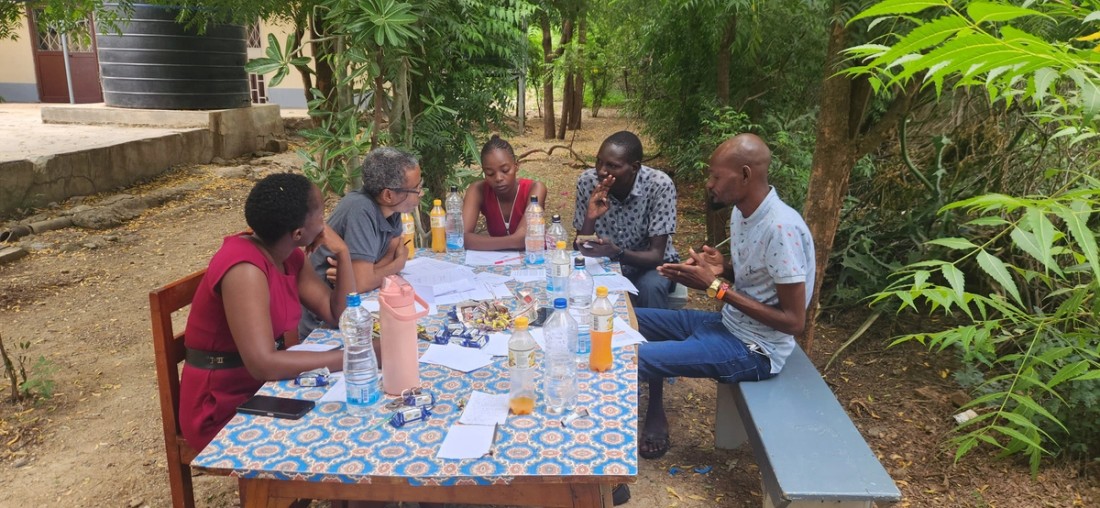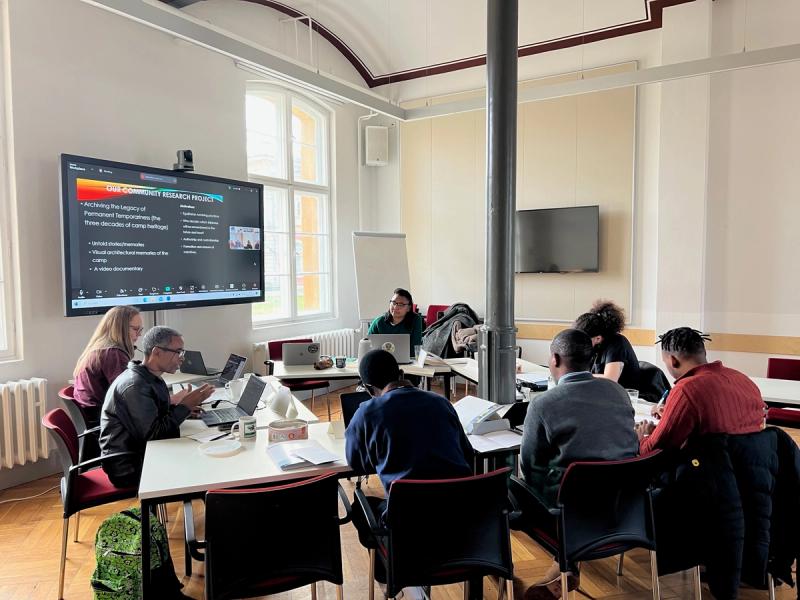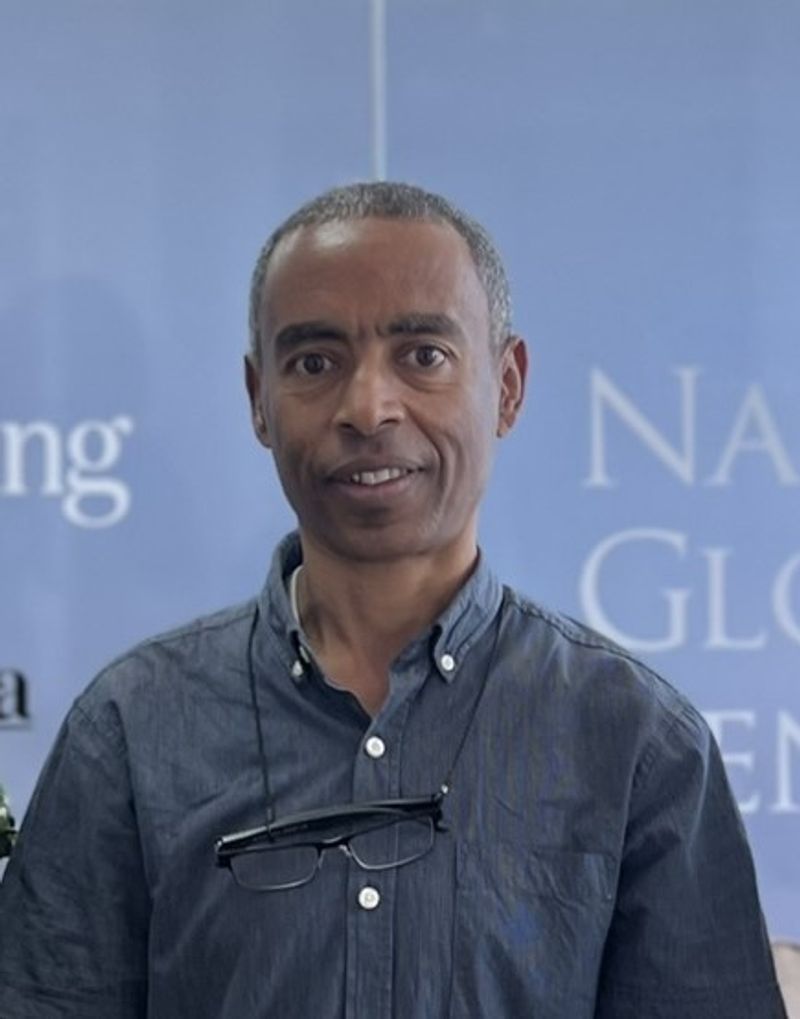From Camp to Conference Room: Reflections of a Refugee and Fellow

A Columbia Global Emerging Scholar on his journey navigating academia as a displaced scholar.
Although displacement was not my origin, it became my destiny. I have lived in Kakuma refugee camp in Kenya for over 10 years, which is to say I have spent over 10 years watching the world decide who deserves to move and who must stay. As a scholar, I study the machinery of movement — the simple and devastating fact that some people's survival depends on motion that the world has declared unwelcome.
For years I pursued this work from the camp itself, in temperatures that climb to 40 degrees Celsius, through periodic dust storms, typing on a laptop when the internet connection held. Between teaching in the camp schools and coaching other displaced scholars, I studied us — the phenomenon I was living. As both researcher and subject, I was trying to understand our situation through an academic framework.
In May, 2025, I applied for Columbia Global's Emerging Scholar Fellowship.
What the Fellowship Offered

The fellowship gave me resources, mentorship, and networking opportunities to research the history of human mobility in the Mesopotamia, tracing how movement evolved from natural patterns to the highly regulated systems we live under now — systems that sort people into "good" migration for the wealthy and "problematic" displacement for people like me.
I conducted research within Kakuma, working with 251 participants and six research collaborators. This is now on its way to becoming my first published book chapter. I presented at universities in Germany, Sweden, and the UK, attended workshops in Nairobi, and learned academic writing principles about adding value to knowledge, maintaining intellectual honesty, and showing genuine concern for readers.
Columbia University professor Abosade George guided my research development. Columbia Global Center team Nairobi offered both financial assistance and something more precious: recognition of refugees as knowledge contributors, rather than merely aid recipients.
But here is what I learned about belonging.
You can be invited to present at Cambridge and still face barriers navigating complex administrative processes in your host country. You can become an expert on mobility while experiencing its intricate realities yourself.
The bureaucracy that governs refugee lives extended into this academic opportunity. I could not overcome certain restrictions, and ultimately my participation in the fellowship had some limitations. This is not a complaint — this is an observation about how there can still be exclusions within inclusions.
The Fellowship provided tools, connections, and recognition that matter enormously. But it also revealed how even when refugees become scholars, the world sees us as refugees first. Our insights are welcomed,. Our presence remains provisional.
I think about fellow camp residents who have equally vital perspectives on displacement but will never access academic platforms. I think about presenting research on hospitality while experiencing its boundaries — being welcomed into conference rooms while remaining indefinitely temporary in the country where I am bound.
What Remains
The Fellowship taught me to connect lived experience with academic analysis. I now have tools to ask harder questions about mobility, belonging, and who gets to shape these conversations — questions that matter beyond Kakuma, beyond Kenya, beyond the comfortable spaces where displacement gets discussed by people who have never been displaced.
I do not know what will happen when the Fellowship ends, whether the work permit that eluded me during this opportunity will materialize for future ones, or if the bridges built here will hold.
What I know is this: the work continues, the contradictions remain, and both are necessary. The questions that drove me to this work — about who gets to move, who must stay, who gets to tell these stories — are not academic exercises. They are matters of survival, dignity, the fundamental question of what it means to be human in a world that measures our worth by the accidents of our birth.
I am grateful for this fellowship. I am changed by it. And I remain, as I began, a refugee scholar in a world still learning what that means.

Global Voices: Scholars Transforming Boundaries
Gerawork Giza is a 2025 Columbia Global Emerging Scholar. This profile is part of "Global Voices: Scholars Transforming Boundaries," a series highlighting the journeys and impacts of alumni and current recipients of the Columbia Global Scholars programs.
Read other stories: